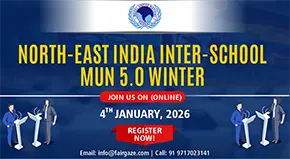
How Mun Training Can Benefit Your Business
The MUN Training provides participants with the opportunity to develop a diverse set of skills and attributes that can be extremely beneficial in the professional world.
In this post, we will discuss how training in the Model United Nations may be beneficial to your business and help you excel in professional settings.
1.Public Speaking and Communication abilities
The development of good public speaking and communication abilities is one of the most significant advantages that can be gained from MUN training. Participants at the MUN take on the role of delegates, during which they participate in discussions, promote the policies of their country, and negotiate with other delegates.
Their capacity to explain ideas in a way that is both compelling and confident will improve as a result of this experience. In the realm of business, clear and concise communication is absolutely necessary for presentations, negotiations, and interactions with customers.
Individuals who have received training in MUN conference are able to articulate their opinions with precision and composure. These are the qualities that make them great communicators in a variety of professional contexts.
2. Capacity for Critical Thinking and Problem Solving
Delegates to the Model United Nations are expected to analyse difficult global problems, comprehend a variety of viewpoints, and provide workable solutions. Critical thinking and the ability to solve problems are developed through participation in this process, both of which are necessary skills for achieving success in a professional setting.
Individuals who have received MUN Training are better equipped to approach difficult challenges strategically, evaluate risks, and think of inventive solutions when confronted with difficult situations or decision-making scenarios.
3. Collaboration, Common Ground, and Consensus Building
Negotiation and diplomacy are essential parts of Model United Nations conferences, where delegates are required to work together, establish common ground, and build consensus among different countries. These skills translate naturally into the realm of business, where professionals frequently face disagreements and are required to negotiate agreements that are acceptable to all parties.
Individuals who have received training in the MUN are able to manage negotiations deftly, looking for solutions in which all parties can benefit while also keeping positive relationships with clients, coworkers, and stakeholders.
4. Capacity for Analysis
Delegates at the Model United Nations are expected to perform extensive study in order to get a comprehensive understanding of the policies of the country to which they have been assigned as well as global issues.
This strategy, which is driven by research, improves their research and analytical abilities, so making it possible for them to efficiently obtain and analyse data. This talent is extremely helpful in a professional setting for conducting market research, competitive analysis, and making judgements based on collected facts.
5. Leadership and cooperation
Model United Nations (MUN) conferences require both leadership and cooperation, as delegates must work together with peers from a variety of various backgrounds to effectively represent their country's interests.
Participants in the Model United Nations can develop their leadership skills by taking on responsibilities such as leading a delegation or chairing committee sessions.
In the business world, persons who possess these leadership and teamwork qualities have the ability to lead teams, motivate their coworkers, and create a working environment that encourages collaboration.
6. Time Management and Adaptability
MUN conferences are fast-paced and time-sensitive,hence, participants are expected to effectively manage their time in order to find a balance between researching, preparing, and participating in debates. This experience is helpful for developing abilities in time management as well as adaptability.
Individuals who have completed MUN training are able to easily handle tight deadlines, shifting priorities, and tough schedules when working in an atmosphere that is fast-paced and business-oriented.
7. Inclusivity and Cultural Awareness
MUN conferences draw students from a wide variety of cultural backgrounds, which helps to cultivate an environment that is both inclusive and culturally aware. Because of this exposure, an individual increases their capacity to work well with people from diverse cultures, while also increasing their capacity to understand and respect the opinions of those people.
In today's increasingly globalised corporate environment, having a cultural understanding that allows you to work well with people from other countries and backgrounds is essential.
8. Self-Assurance and Resilience
In order to participate in Model United Nations, delegates must be able to push themselves beyond of their comfort zones, communicate effectively in front of big audiences, and take constructive criticism. Individuals get the self-assurance and resiliency necessary to triumph over obstacles and failures that arise in the course of their professional careers as a result of this.
People who are self-assured have a greater propensity to engage in risky behaviours and be open to novel opportunities, both of which contribute to their success in the economic sector.
Also Read: Model United Nations
Related Blogs
-
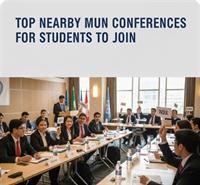
24-Dec-2025 Top Nearby MUN Conferences for Students to Join
-
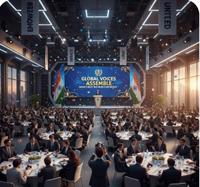
27-Nov-2025 Global Voices Assemble India Next Big MUN Conference
-
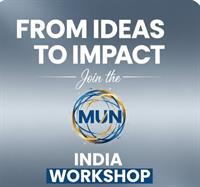
13-Nov-2025 From Ideas to Impact Join the MUN India Workshop
-
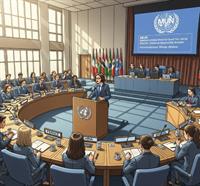
14-Aug-2025 What Is A Conference In MUN?
-
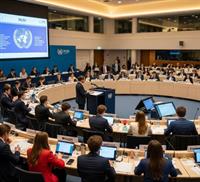
07-Aug-2025 What Does the MUN Do?
-
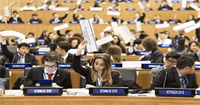
03-Jul-2025 Ways to Research for a Model UN Position Paper
-
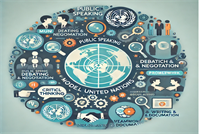
28-Mar-2025 What skills do you gain from Model United Nations?
-
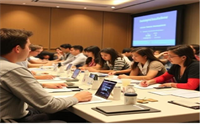
19-Mar-2025 MUN Near Me Upcoming Conferences and How to Register

